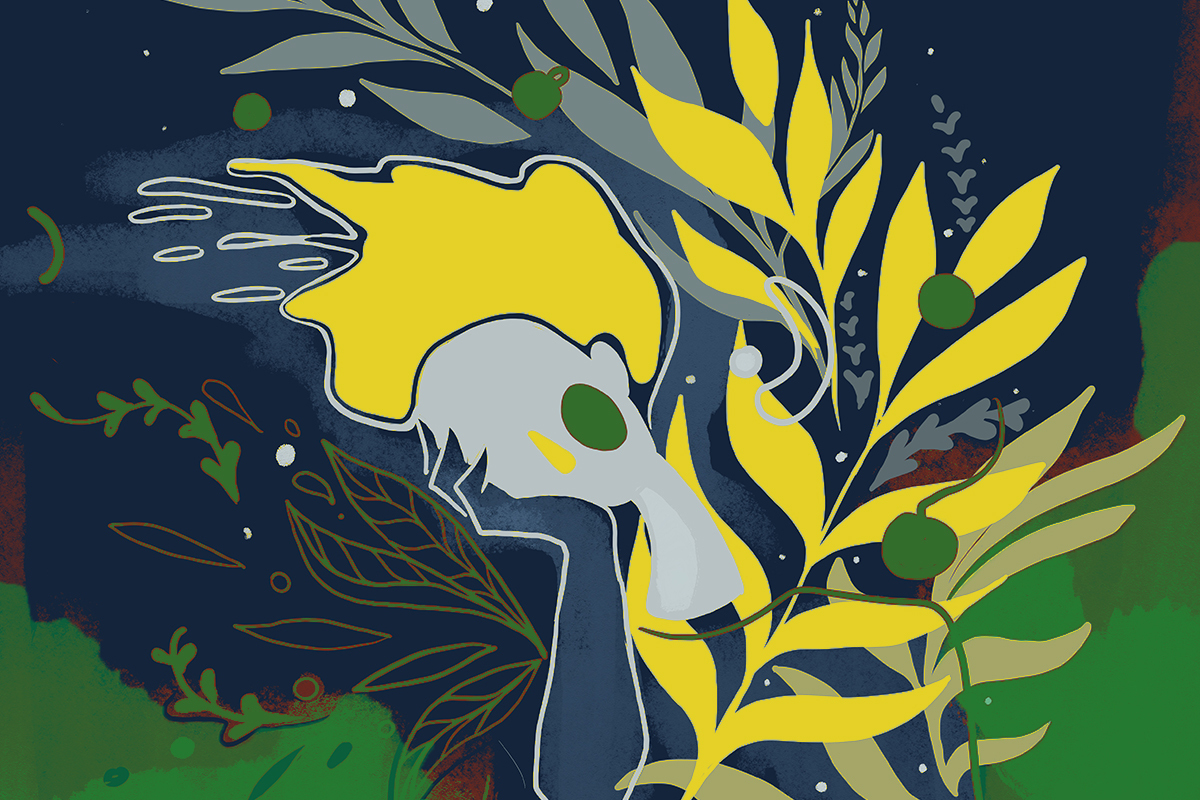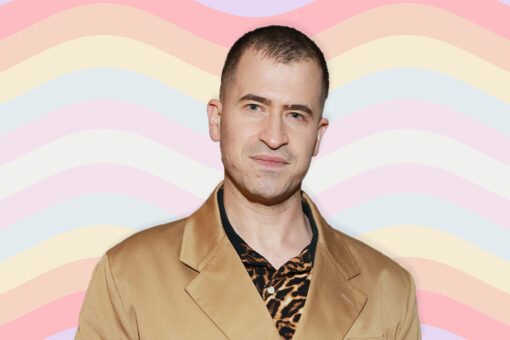I was around 4 or 5 years old when I found out it made no sense to give a Santa Claus toy as a gift to my Jewish grandparents.
I was born and raised in Brazil, one of the most Christian countries in the world, in the second biggest city in Latin America, São Paulo. I had a vague sense my parent’s marriage was interfaith, but I didn’t fully understand it until that day, when they explained to me that not everyone has the same experience during December, not even everyone within our family.
It took me many years to realize that outside my family’s gatherings, I would mostly be the only Jewish person everywhere. While all the other kids were celebrating the same holidays and traditions, I would inevitably feel left out. Although Brazil is an extremely diversified country when it comes to ethnicities, origins, religions (although predominantly Christian, we have Afro-Brazilian faiths, for instance) and class, it never seemed like anyone stopped to question whether it was fair to assume that everyone faced the same reality.
My experience was also quite different from other Jewish kids in Brazil because I never got to study at Jewish schools or go to major events put on by Jewish institutions in our community. I didn’t have a Jewish best friend, someone my age who could understand and support me. All the antisemitism I faced, I did it alone. I never considered talking about it with my family, since life wasn’t easy for them either.
When I was 11, I transferred to a new school where I didn’t mention my Jewishness to anyone — because I could. As a white Ashkenazi person living in Brazil, most people thought I was just another kid with a complicated last name from somewhere in Eastern Europe. Most Brazilians I encountered had no idea who Jews actually are, except for some misconceptions and historical associations: the people who murdered Jesus; the people who Hitler murdered; characters from movies and books like Schindler’s List and The Book Thief.
But as a secret Jew, I was surrounded by antisemitic microaggressions from other students and adults. It made me realize that my Jewishness, despite not exposing it, would still make me feel hurt and terrified. At that time I tried to protect myself, thinking they were just words — no one hit me, no one sent me threats. Little did I know the harm was already done.
The antisemitism I faced was so easy to grow: It took only one or two kids to say something, while others would either agree or stay silent. Now, over five years later, after I graduated high school, I realize these experiences were the basis of real trauma.
Brazil has a Nazi history, starting before WWII with a wave of German immigrants to the country. When Hitler came to power, Nazi propaganda was spread through Brazil, mostly in São Paulo and the south. During that period, Brazil had the biggest number of affiliations to a Nazi party outside Germany.
After the war, more Nazis fled to the country, running away from the Allies’ attempt to prosecute them as war criminals. Among the more prominent Nazis to do so was Josef Mengele, the doctor known for performing experiments with humans in Auschwitz, who died in 1979 in São Paulo.
One of those surviving Nazis was the grandfather of a student that turned my high school experience into a daily dose of antisemitism. She would say things such as “Jews are bad, rich people that look like demons and can’t be trusted.” She turned “Jews” into a subject of conversation often, and suddenly other girls, my “friends,” would ask her questions in order to “learn” more.
In the same classroom, there was a boy who was obsessed with Hitler. The other students found it funny and called him “Adolfo.” The way he talked about Hitler was so absurd that not even Jojo Rabbit or Borat could depict something so shocking. “We call him Adolfo because he hates Jews,” teenagers would explain, laughing. He treated me well because he didn’t know who I was.
Other teenagers were fascinated by Nazi objects they collected, as if they were something cool. They showed me their knifes, spoons, and all sorts of materials with swastikas on them. It seemed like it was all a game for them, not a piece of evidence of a crime against humanity. I was reminded everyday of my family’s suffering.
I will never forget was when I found a swastika drawn on my desk. I erased it and left an antifascist message for the person who did it in response. But to this day, I ask myself: Did they know my true identity? Or was it just part of their Nazi adoration?
For the most part, when I witnessed these antisemitic incidents, I would stay silent and not get verbally involved. I was afraid that reacting would turn me into a target and, given these experiences, I would suffer more than I already did. Nevertheless, a particular event put me on the edge: The granddaughter of the Nazi claimed, out of the blue, “When I see a Jew in the streets, I just want to set him on fire.” There was nothing but silence from my friends. In that moment, I lost my capacity to be calm, turning completely red and running away from the classroom straight to the bathroom before they could see me cry.
When I looked into the mirror, I knew I was alone. If my friends found out I was Jewish, would they leave me? Were they ever truly “with me” to begin with, if I couldn’t be fully myself around them?
Through those years, my safe space was with my teachers. I could count on many of them, but my history teacher was the one with whom I could open myself the most. While my peers dove deep into fake news about Jews and Nazis, I would go see him after class and ask multiple questions about the subject.
It was that history teacher who taught me about the imprisonment of Olga Benário by Getúlio Vargas’ government in 1936. She was a Jewish-German communist who was sent on a mission to help Brazilian revolutionaries. She got detained and later expelled from Brazil to be sent directly to Nazi Germany, where she was murdered in a gas chamber. I started to admire Benário because I could see myself in her identity and beliefs. I wanted to be as strong and smart as her.
After high school, when I was 17 years old, I cut ties with almost all the students from my class. I finally felt free.
My relationship with my Jewishness changed completely since I got into university, where I was no longer the only Jewish person, and I managed to feel safe and proud around my history and beliefs. I also no longer felt like I needed to hide other parts of myself as a bisexual woman with leftist ideals. Now, I’m proud of every bit of who I am, and those that are meant to love me must do so without exceptions and secrets.
It is a cliché to point out that education is a key factor to fight antisemitism in Brazil, but it’s true. Unfortunately, this isn’t something that most value and invest in when talking about our community. We never had a “denazification” program, since we never truly recognized our country’s Nazi past to begin with. The election of President Bolsonaro, who’s considered a nationalist with far-right policies, is just one of the results of this project that erases our history and systemic violence.
I believe antisemitism in Brazil is a result of a “project of ignorance,” as sociologist Darcy Ribeiro calls it: “The education crisis in Brazil is not a crisis, it is a project.” Discrimination and intolerance aren’t random aspects born into our society; they are a consequence of multiple governments that knew the power of a truly liberating educational system, and how it can endanger their control.
Each day I use my research about persecuted minorities in Brazil as a small step towards fighting this, even though I know I can’t change everything by myself. True freedom for all can only begin when we end this project of ignorance. Because where there is freedom, there are no more secrets.



